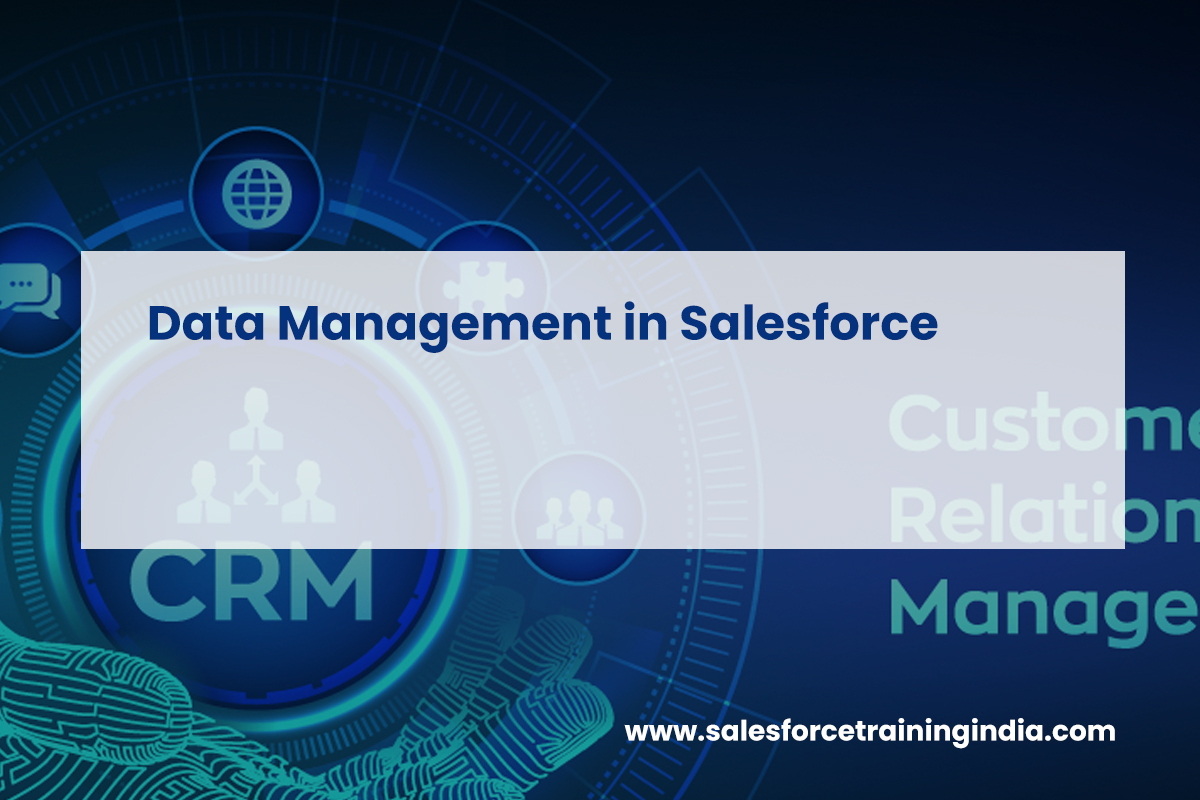Data Management in Salesforce
Data management is a crucial part of using Salesforce effectively. It involves handling the data that your business collects and stores in Salesforce, ensuring it’s accurate, up-to-date, and useful. Think of it as organizing and taking care of your digital business records.
- Importance of Good Data Management: Having clean, reliable data in Salesforce is vital. Good data helps you make better business decisions, understand your customers more deeply, and manage relationships efficiently. On the other hand, poor data management can lead to confusion, missed opportunities, and even incorrect business strategies.
- Data Import and Export: Salesforce allows you to bring data in (import) from other systems and take data out (export) for use in other applications. This is useful when you’re starting with Salesforce and need to move your existing customer data into it, or when you need to do analyses in another program.
- Data Import Wizard: This is a tool within Salesforce that makes it easy to import data. It’s user-friendly and helps you bring in data for standard objects like contacts, accounts, and leads, as well as for custom objects.
- Data Loader: When you have large amounts of data or need more control over the import process, you can use Data Loader. It’s a more advanced tool that can handle bigger data sets and offers more options in how you import and export data.
- Data Quality Management: It’s not just about having data; it’s about having good quality data. This includes making sure data is accurate, complete, and up-to-date. Duplication of records, outdated information, or incorrect data entry can lead to problems in how you engage with customers and make business decisions.
- Duplicate Management: Salesforce has features to identify and merge duplicate records. This helps in maintaining a clean and efficient database.
- Validation Rules: These are rules you set up in Salesforce to make sure the data entered meets certain criteria. For example, you might create a rule that a phone number field must contain 10 digits, ensuring data consistency.
- Regular Data Audits and Cleanups: Over time, your Salesforce database can get cluttered. Regular audits (checking the data for accuracy and completeness) and cleanups (removing or updating outdated or incorrect data) are important to keep your database healthy and useful.
In summary, managing data in Salesforce is about bringing in the right data, making sure it’s good quality, and keeping it clean and organized. This ensures that your business has the information it needs to operate effectively and make informed decisions.
Are you ready to elevate your Salesforce skills? Dive into our specialized Salesforce training in Hyderabad, meticulously designed to provide hands-on experience and real-time knowledge. Our comprehensive, project-based course ensures you gain practical skills with daily notes, engaging projects, and targeted preparation for certifications and interviews, preparing you thoroughly for the dynamic Salesforce ecosystem.





Leave a Reply
You must be logged in to post a comment.